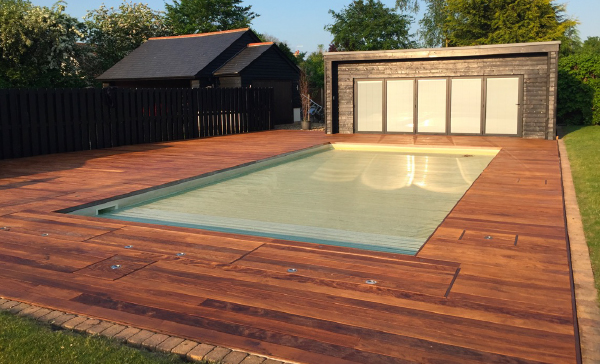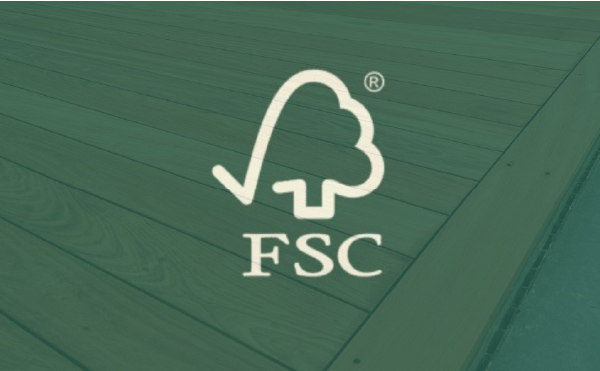How durable is Ipe?
Let’s start with the most famous question of all: is Ipe really as durable as people make it out to be? The short response being, YES, of course it is! Ipe is by far one of the strongest decking materials you’ll find. It’s extremely dense, commonly described as being “hard as nails”. With Ipe being so tough and resistant, it makes it less susceptible to damages, burning, and means it can carry an immense amount of weight.
Is Ipe sustainable?
You should be aware that there is a black market when it comes to sourcing Ipe. With it being in such high demand, its no surprise that its often harvested illegally. But Ipe hardwood can be 100% sustainable as long as its sourced right. The thing to look out for when purchasing your Ipe is the FSC Certification, confirming the product has been sourced from well-managed forests. As long as the wood has this stamp of approval, it’s a completely sustainable product. We feel strongly about preserving the environment which is why all of our Ipe is FSC approved.
How long does Ipe last?
Ipe will last you a lifetime! All it needs is a bit of TLC to protect its lifespan. Whether it be in the form of oils and treatments, or just a stripper and a clean with a pressure washer, as long as you give it a bit of maintenance every so often, your Ipe will last a good 75 years or so.
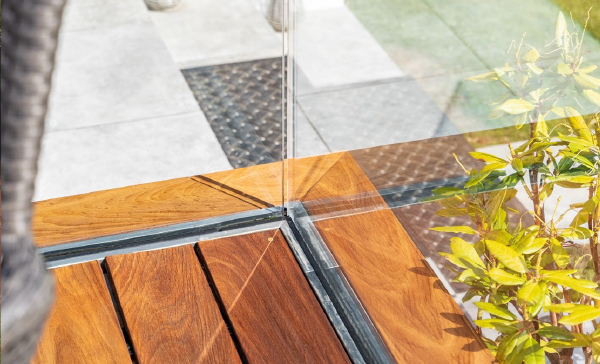
Is Ipe slippery?
So, now we need to get into the science of it all. The wood fibres in Ipe are very tight and this is actually what gives Ipe its density. These tight and dense fibres are what makes it so difficult for rain to penetrate the wood, meaning when it rains, the amount of moisture it absorbs is next to none, so the timber is not affected by water, including the surface of the wood. And now that you understand this, its probably self explanatory at this point that Ipe IS naturally slip-resistant. Additionally, the smooth profile of Ipe means the contact with the soles of your shoes is greater, adding even further grip.
Does Ipe get hot?
Due to the extremely tight wood grain, its not just water that Ipe is resistant to absorbing, but its heat too. Naturally, it might have some surface warmth when the sun is out, but it doesn’t retain the heat, so if you want walk around your decking bare footed in the summer, feel free!
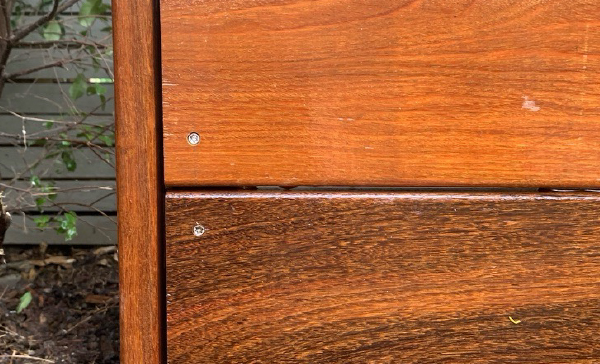
Does Ipe need to be sealed?
We touched on maintenance a bit when talking about the longevity of Ipe, but just to clarify, your Ipe does not need to be treated. It depends on the look and appearance you want to achieve, but you can just strip it back and clean it using a pressure washer with care (not high pressure) to maintain your wood. It doesn’t have to be a full-blown sanding and treatment process – whatever suits you!
Is Ipe fire resistant?
Obviously, all wood burns, there’s no question about it. But in comparison to other timbers and building materials, Ipe stands out for its fire resistance. Its density helps prevent flames from gaining and spreading. It’s important to note that while no wood is fireproof, Ipe is certainly the most resistant.
Is Ipe toxic?
In contrary to the rumours, Ipe is not a highly toxic wood. It can, however, be allergenic as the dust is so fine that it can get into your eyes, nose and ears during construction. We recommend always using protective gear when working with Ipe, as you should do when working with any type of wood.
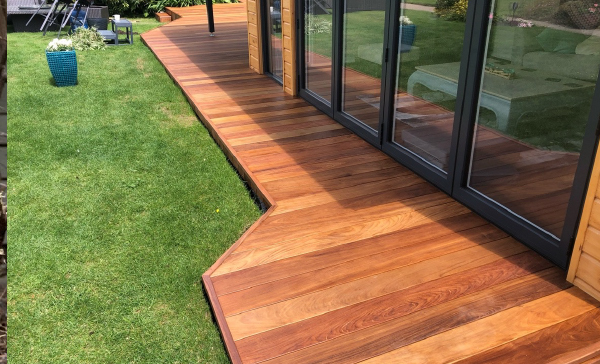
Is Ipe hard to work with?
The common misconception made by builders and landscapers is Ipe is hard to work with because of its density. But Ipe is no harder to work with than any other wood, as long as you have the right tools and blades, there’s no reason why you should struggle to use Ipe on any project.
Is Ipe worth the cost?
You’ve probably noticed by now that while there’s a lot of advantages to buying Ipe, it is one of the more expensive hardwood options. If budget is an issue for you, you’re probably leaning more towards the cheaper alternatives like Yellow Balau. But Ipe decking is more than worth that extra bit of expense. Essentially, you’re paying for what you get, which is one of the best, most hardwearing decking materials in the industry. Ask anyone who’s already used Ipe if it was worth it, the answer is always a big, fat YES.
And that’s all of it! We’ve covered just about everything you need to know about Ipe. So now you can go and browse through our Ipe Decking products with confidence that you’ve got all the right info.
Happy shopping!
